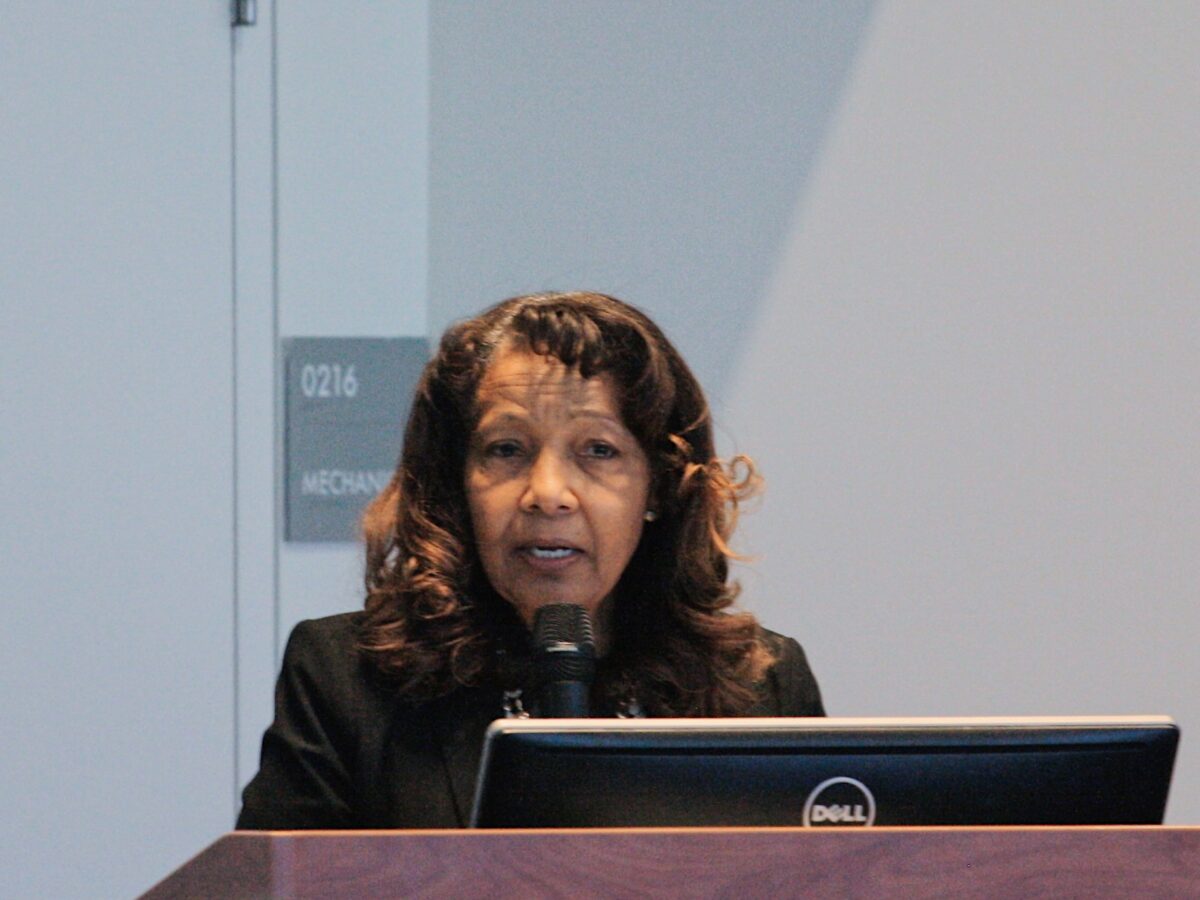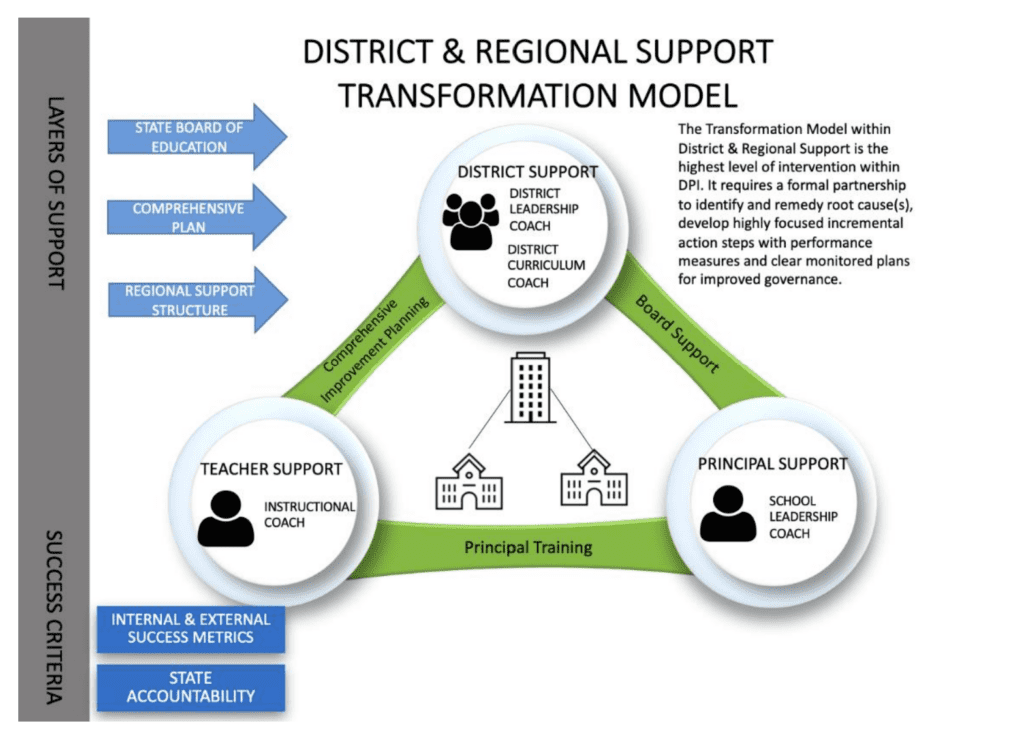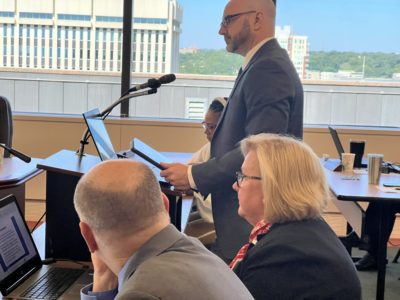
|
|
It was a “story of transformation” that brought Rosa Atkins, superintendent for Northampton County Schools, to the North Carolina State Board of Education’s Nov. 1 work session, where she described how CARES impacted schools in her district.
The State Board of Education voted last week to submit its report on low-performing schools to the General Assembly. A portion of this report — see pages 16-17 — details the impact CARES has made on low-performing schools and districts since the 2021-22 school year, when the CARES work began. The report also discusses other state interventions.
In 2022-23, there were a total of 804 low-performing schools in the state and 25 low-performing school districts, according to the report. Of those, for 658 the low-performing designation is recurring — that’s 26.4% of the 2,484 schools. There are 60 fewer low-performing schools than last school year and four fewer low-performing districts.
Sixty of 206 charter schools were low performing, and 57 were continually low performing — that’s 27.6%.
What is CARES?
“CARES Support is the highest level of intervention within the Department of Public Instruction,” says this report to the legislature on low-performing schools.
This intervention program helps to identify the causes of challenges in low-performing schools and intervene with support to bolster the school’s achievements and performance. Low-performing schools are those that earn an overall school performance grade of D or F and a school growth score of “met expected growth” or “not met expected growth,” according to state statute.
One district’s journey
The Northampton County School Board received a CARES team in 2021, which helped to identify areas for improvement within the district, such as operations, finance, culture, and more, Atkins said.
With help from the CARES assistance team, Atkins said her district is feeling real improvements; for the first time in 10 years, the district no longer has an “F” school performance score, and a total of 90% of the district’s teachers have met or exceeded growth.
“True transformation could only occur through a candid acknowledgement of our shortcomings and a willingness to address them. Northampton County took the brave step to do that,” Atkins said. You can see her presentation here.
How does CARES work?
According to the report to the legislature, “The model provides support at those areas of district and school governance research shows is essential to improved outcomes: classroom level, principal level, curriculum level, and district leadership level. The model provides ‘boots-on-the-ground’ support for schools and districts continually designated low performing.”

Schools receive support from a district leadership coach, a district curriculum coach, an instructional coach, and a school leadership coach. According to a presentation to the Board, the focus on coaching is designed to:
- Shift the role of principal from building managers to instructional leaders.
- Provide access to structured curriculum and standards-aligned resources.
- Encourage experimentation and practice different instructional models.
- Create opportunities to gain knowledge and skills to effectively execute data-driven instruction specifically to identify gaps and disparities.
- Focus and prioritize culture.
- Support Comprehensive Needs Assessments (CNA) and School Improvement Planning (SIP).
Julie Marks, director of program evaluation and senior research associate for the Education Policy Initiative at Carolina, presented preliminary evaluation findings about CARES to the Board last week. You can see her presentation here.
Around 64% of CARES schools met or exceeded growth in the 2022-23 school year, according to Marks’ presentation, and 35 of the 102 CARES schools have better school performance scores compared to scores before the pandemic.
Though more than 90% of CARES schools continue to have a “D” or “F” in school performance, 75% of them have improved reading and math scores, according to Marks’ presentation.
Marks highlighted voices from the field for the State Board:
“…[The coach] has given me feedback on how to better distribute myself throughout the building, but also grow leaders in the building that can help me with some things that I can’t manage. She helped me to develop other leaders, and to see that there are other people that can take on roles and responsibilities because I can’t manage it all.” — Principal
“This county is truly becoming a transformational county with those pieces in place…this whole experience has been a complete overhaul for everybody now that we have a structured curriculum…where everybody across the board was using the same.” — Teacher
“[The coach’s] focus…has been on instructional excellence. On a scale of one to 10, it’s definitely a 10 and the teachers have voiced that…Once they accepted this as a partnership, that she was there to support them in their learning, and to partner with them, to help give them that time where they could experiment with it and try it, and not feel like they were under the microscope being evaluated.” — Principal
“[N]ow we have data questions in place and when we’ve had our data days, they have loved them. My teachers, it’s beyond anything I could have envisioned as to how excited they are that transparency has been there now. They see the fruits of their labor.” — Principal
“[T]he culture now is the best it’s ever been. I have people that have been at the school 10 to 13 years, and they say, this is the happiest I’ve ever been. This is the happiest the staff has been.” — Principal
State Superintendent Catherine Truitt said it is clear school staff have appreciated coaching and support through the CARES program, but she wanted to caution the Board that the program is still in its early stages.
“This is very early. It is not student-level data,” Truitt said.
The power of words for schools in need of support
While the work of CARES continues, some superintendents are trying to think differently about meeting their students’ needs.
Anthony Jackson, superintendent of Chatham County Schools, said his district makes an effort to recognize that there are high-performing students in every school, regardless of low-performing status.
“Effective improvement focuses on individual student needs rather than a school’s overall ranking,” Jackson said.
Jackson also said his district reframes the “low-performing” designation with different language.
“In Chatham County Schools, we avoid labeling schools as ‘low performing.’ Instead, we identify them as ‘Schools in Need of Support,'” Jackson said. “We collaborate with these schools to create targeted plans, leveraging their strengths and best practices while providing extra resources to address specific areas of improvement. As a school leader, I emphasize the power of words and a growth mindset.”





